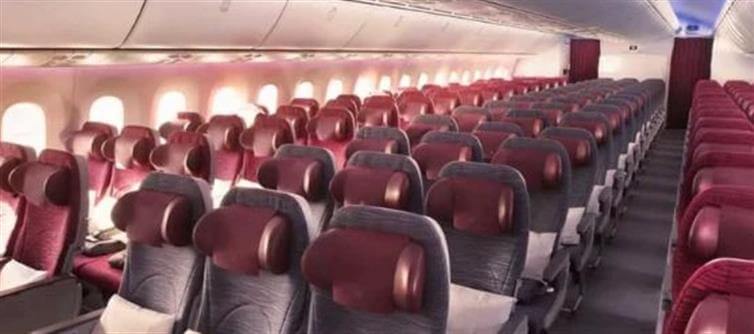
It's not a coincidence, a mistake, or a lost seat. Numerous airlines worldwide deliberately choose not to utilize row 13, instead moving from row 12 to row 14. However, why? The answer is derived from a rather unusual synthesis of cultural beliefs and old superstitions. For a variety of reasons, airplanes do not have row 13, just as some buildings do not have a thirteenth level.
What is the secret behind the missing Row 13 on airplanes?
In order to reduce tension and promote comfort during flights, airlines usually avoid using the number 13 because many travelers are anxious about traveling. Although it is regarded as a trivial move, its purpose is to keep passengers at ease throughout their journey.
Why is Number 13 considered unlucky?
Numerous cultures have considered the number 13 to be unlucky for ages. A lot of airlines intentionally leave row 13 off of their seating charts because of this pervasive superstition. The Merriam-Webster report defines triskaidekaphobia as the dread of the number 13. This fear is prevalent even in the sky and differs from culture to culture. According to reports, well-known airlines like singapore airlines, Ryanair, Emirates, and Cathay Pacific purposefully steer clear of the number 13 out of consideration for the comfort and beliefs of its customers.
The biblical allusion to Jesus Christ's Last Supper is one commonly recognized theory. 13 people were seated at the table for this final lunch, as is customary. The myth of the unlucky number 13 originated with Judas, the betrayer of Christ, who is thought to have been the thirteenth guest to sit at the table.
Norse mythology provides the basis for another theory. There is a feast of twelve gods in this account of events. As the thirteenth unexpected visitor, the cunning god Loki deceived the deity Hoor into killing Baldr, bringing misery and mayhem to the earth. Additionally, this version adds to the notion that the number 13 is unlucky.
Row 13 can be skipped for a more practical purpose than superstition. customer happiness is a top priority for airlines, and even if a small percentage of travelers are unhappy about sitting in row 13, it could result in complaints, requests to switch seats, or, in the worst case, cause them to lose business to other carriers.
The comfort of passengers will always come first in a highly competitive industry, even if it means ignoring seat numbering.
Interestingly, Lufthansa bypasses row 17 rather than row 13, according to media reports. Because of the way the number four is spoken ("si"), which is similar to how death is pronounced, the Chinese and other Asian cultures view it as unlucky. Consequently, it should come as no surprise that many buildings lack a fourth level.




 click and follow Indiaherald WhatsApp channel
click and follow Indiaherald WhatsApp channel